Initiatives
Questionmark is a European think tank that strives to drive progress towards a more sustainable and healthy food system. Part of what we do is conducting independent research projects and building movements.
Every one of our initiatives is built upon a theory of change that connects measurable goals with long-term system changes.
Here is an overview of our initiatives, which will give you a guide to some of our ongoing work. We are always open to collaborations, also for ongoing projects, so please reach out to one of the project leaders with any enquiries.
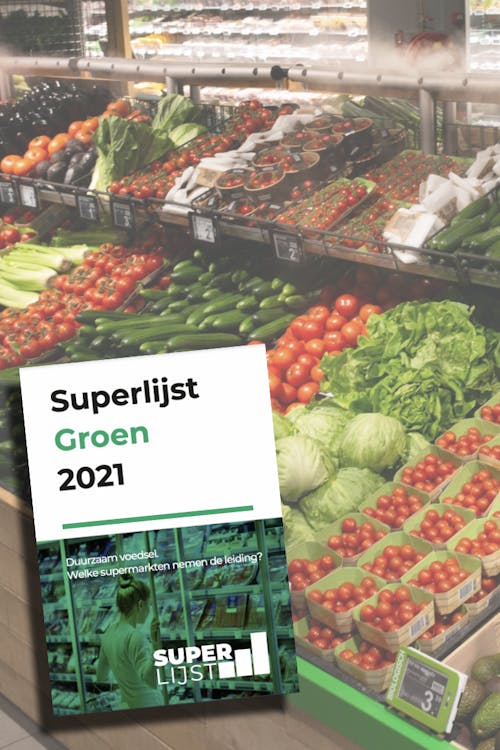
Superlist Green
How do supermarkets contribute to a sustainable food system?
The Superlist research programme has been comparing supermarkets’ contribution to a more sustainable and healthy food system since 2018.
In September 2023, Questionmark will publish the second edition of ‘Superlist Green’, which is focused on sustainability. The research compares supermarkets on topics including:
- the protein transition (to a more plant-based food pattern)
- nature-inclusive and circular agriculture
- plastic and food packaging
- their climate policy
The report will also indicate what improvements supermarkets have implemented since 2021, when the first edition of Superlist Green was published. Our research is conducted under supervision of the Scientific Council.
The Netherlands | started: 2018 | Project leader: Deborah Winkel | Partners: Natuur & Milieu (NL), Milieudefensie (NL)
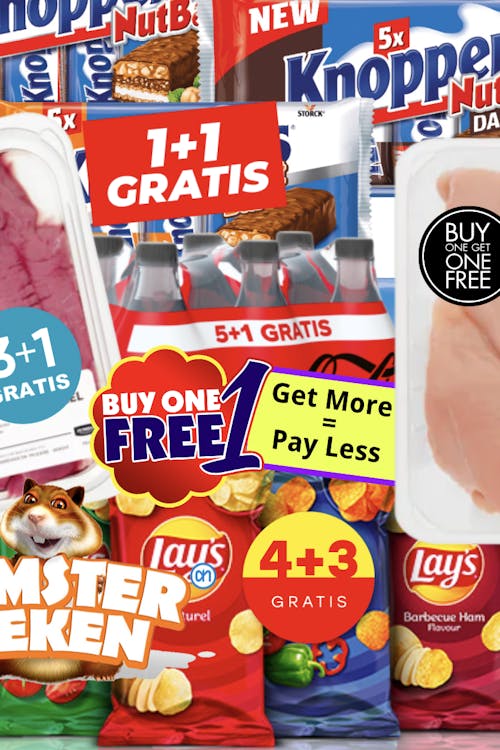
Good Food Affordable
How does marketing encourage the overconsumption of meat and unhealthy food?
Retailer promotions encouraging customers to buy more food - such as ‘Three for the price of one’ and ‘Buy one get one free’ - are the backbone of food marketing. But these promotions encourage people to buy - and eat - more food than they had planned to. This overconsumption is also driving food waste, and a host of other societal issues, including preventable disease, deforestation and climate change.
This project is looking into how supermarkets in The Netherlands and other European countries use multi-buys. We’ll be talking with experts from the food industry, science, government and civil society, to gain insight into recent developments and thinking - and then we’ll offer practical solutions to policymakers.
The project consists of two strands: multi-buys and health; and multi-buys and meat consumption.
The Netherlands, Sweden | Started: 2022 | Project leader: Dore de Jong | Partners: WWF Sweden (SE), Reformation (SE)
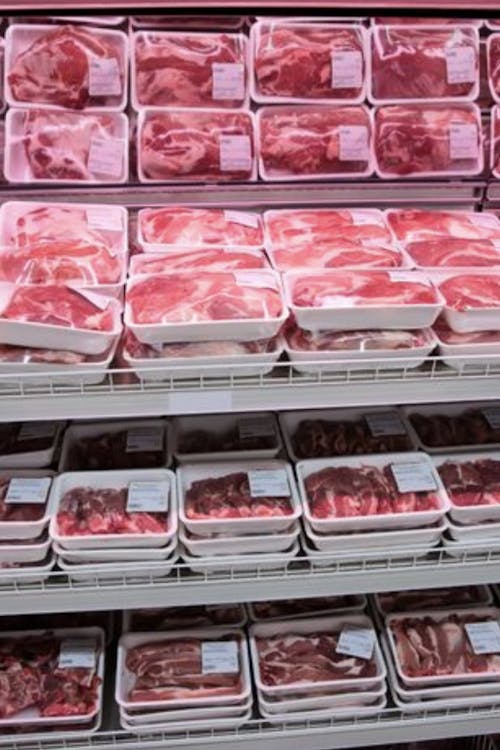
Supermarkets and the protein transition
Reducing animal-based food: a collaboration between competitors
A future-proof food system must be mostly plant-based. Supermarkets can help to drive the huge changes needed to make this transition by giving animal products a less prominent role. However, this will only work if all supermarkets adapt together in collaboration, rather than in competition.
In this project, we help supermarkets find collective solutions. We, alongside scientific experts and government, aim to find opportunities for supermarkets to collectively fuel the protein transition.
By 2024, we will have established an agreement among Dutch supermarkets for at least one ambitious measure to reduce customers’ consumption of animal-based products.
The Netherlands | Started: 2022 | Project leader: Gustaaf Haan | Partners: Natuur & Milieu (NL), Proveg (NL), GPA (NL)
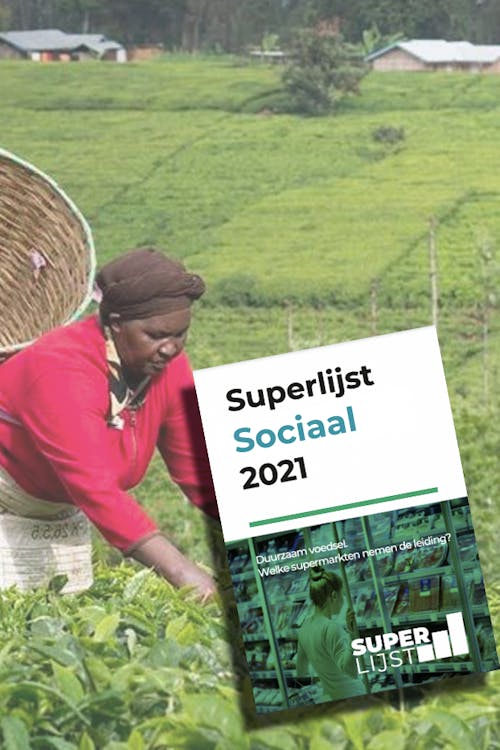
Superlist Social
How do supermarkets contribute to a fair food system?
The Superlist research programme has been comparing supermarkets’ contribution to a healthy and sustainable food system since 2018.
In May 2023, we will publish the first edition of ‘Superlist Social’, which focuses on fair trade and human rights. It will compare supermarkets on topics including:
- the extent to which human rights are documented in supermarkets’ policy and procurement contracts
- working conditions and workers’ rights
- the relationship between supermarkets and small-scale farmers
- the position of women in supermarket supply chains
This research builds on Oxfam Novib’s ‘Behind the Barcodes’ campaign, which compared supermarkets’ efforts over several years.
The Netherlands | Started: 2018 | Project leader: Pien Nijpjes | Partners: Oxfam Novib (NL), Solidaridad (NL)
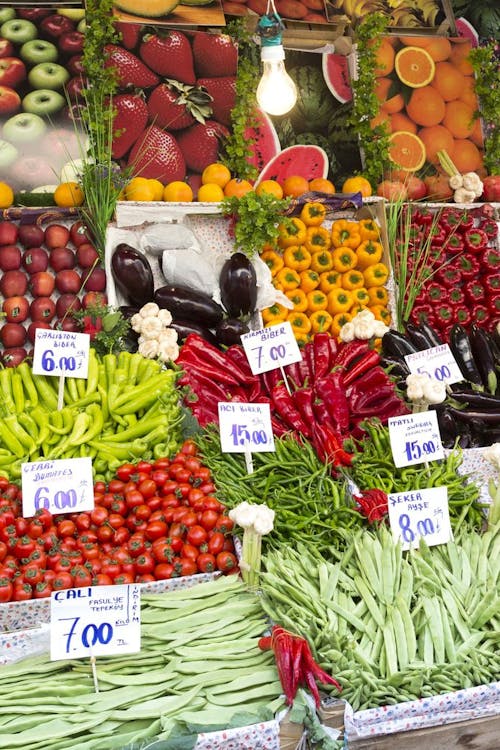
Sustainable value distribution in the food chain
What does a euro spent at the checkout mean for a farmer?
Thanks to the Common Agricultural Policy, seventy percent of European subsidies are spent on the production of animal feed. This is in conflict with the European Union Farm to Fork Strategy, which emphasises the importance of transitioning to a more plant-based food system.
For this project, we will gather facts, figures and arguments to help strengthen political support for a more sustainable Common Agricultural Policy.
Gaining a better understanding of the drivers of the price of food, for both consumers and producers, allows us to have broader conversations about how to make the system fairer for people and the planet.
The insights we hope to gain will also help supermarkets improve farmers’ livelihoods and encourage them to transition to sustainable food production.
Belgium, The Netherlands, Germany, Denmark | Started: 2022 | Project leader: Deborah Winkel | Partners: Deutsche Umwelthilfe (DE), Feedback EU (NL)





